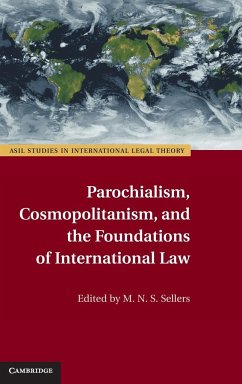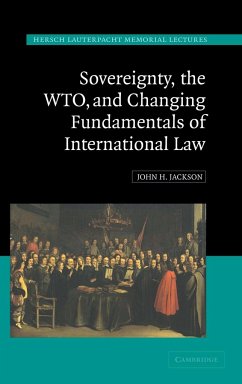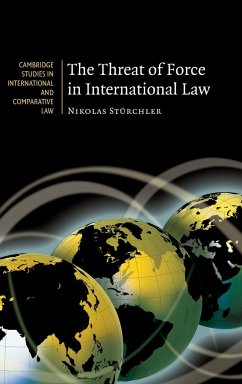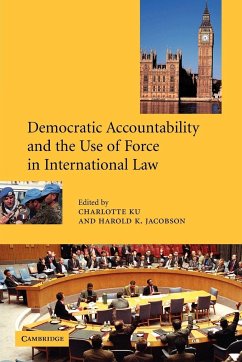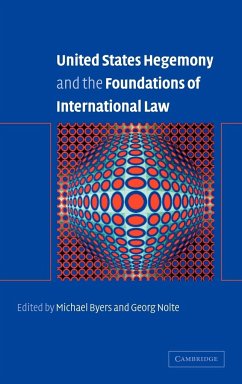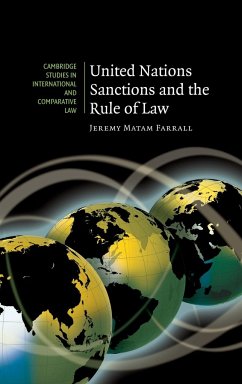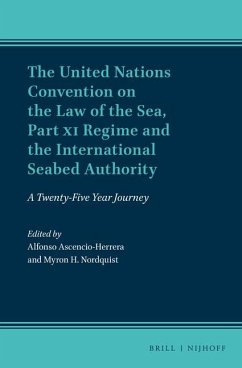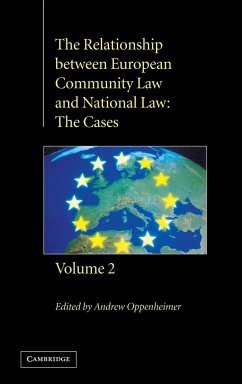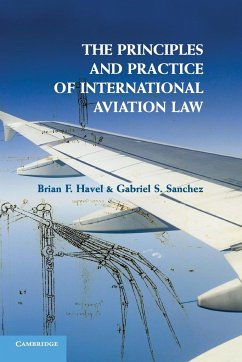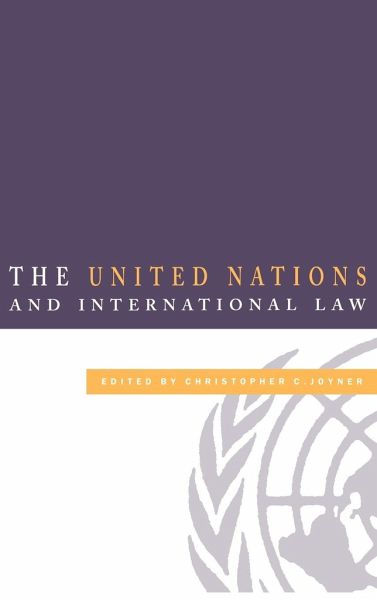
The United Nations and International Law
Versandkostenfrei!
Versandfertig in 1-2 Wochen
134,99 €
inkl. MwSt.

PAYBACK Punkte
67 °P sammeln!
This volume provides students and scholars with a text that examines, explains, and appraises contributions made by the United Nations to contemporary international law and the law-creating process. The authors consider how UN institutions have made the law, what law has been made, and the extent to which that law has been meaningfully accepted by and evidenced in contemporary state practice. The study first deals with processes and measures that cut across law-making, covering practical as well as conceptual aspects. Then the substantive law is addressed in terms of the different fields of ac...
This volume provides students and scholars with a text that examines, explains, and appraises contributions made by the United Nations to contemporary international law and the law-creating process. The authors consider how UN institutions have made the law, what law has been made, and the extent to which that law has been meaningfully accepted by and evidenced in contemporary state practice. The study first deals with processes and measures that cut across law-making, covering practical as well as conceptual aspects. Then the substantive law is addressed in terms of the different fields of activity that the United Nations has made subject to legal rules and processes. Some chapters cover prominent areas, such as human rights, use of force, and economic relations; others deal with topics which have not previously been examined with sufficient care, such as labor, the environment, refugees, and women. The book's final section deals with the internal law of the UN system itself - the international civil services and financial contributions.
Table of contents:
Part I. The UN System as a Source of Law: 1. The UN legal order: an overview Oscar Schachter; 2. General law-making processes Paul Szasz; 3. Specialized law-making processes Frederic L. Kirgis, Jr; Part II. Substantive Law: 4. Force and arms John F. Murphy; 5. Human rights Hurst Hannum; 6. Refugees and migration David A. Martin; 7. Women Rebecca J. Cook; 8. Labor Virginia A. Leary; 9. Economic relations and development Stephen Zamora; 10. Environment Ved P. Nanda; 11. Law of the sea Bernard H. Oxman; 12. Outer space Ralph G. Steinhardt; 13. International crimes John F. Murphy; Part III. International Law: 14. Law of the international civil service Robert S. Jordan; 15. Financial responsibility of members Jose E. Alvarez; 16. Conclusion: the United Nations as international law-giver Christopher C. Joyner.
This volume provides students and scholars with a text that appraises the contribution made by the United Nations to contemporary international law and the law-creating process. Covering a wide range of UN activity, this book represents a comprehensive guide to the role of the UN in providing viable legal rules to deal with international problems.
This volume provides students and scholars with a text that appraises the contribution made by the United Nations to contemporary international law.
Table of contents:
Part I. The UN System as a Source of Law: 1. The UN legal order: an overview Oscar Schachter; 2. General law-making processes Paul Szasz; 3. Specialized law-making processes Frederic L. Kirgis, Jr; Part II. Substantive Law: 4. Force and arms John F. Murphy; 5. Human rights Hurst Hannum; 6. Refugees and migration David A. Martin; 7. Women Rebecca J. Cook; 8. Labor Virginia A. Leary; 9. Economic relations and development Stephen Zamora; 10. Environment Ved P. Nanda; 11. Law of the sea Bernard H. Oxman; 12. Outer space Ralph G. Steinhardt; 13. International crimes John F. Murphy; Part III. International Law: 14. Law of the international civil service Robert S. Jordan; 15. Financial responsibility of members Jose E. Alvarez; 16. Conclusion: the United Nations as international law-giver Christopher C. Joyner.
This volume provides students and scholars with a text that appraises the contribution made by the United Nations to contemporary international law and the law-creating process. Covering a wide range of UN activity, this book represents a comprehensive guide to the role of the UN in providing viable legal rules to deal with international problems.
This volume provides students and scholars with a text that appraises the contribution made by the United Nations to contemporary international law.





